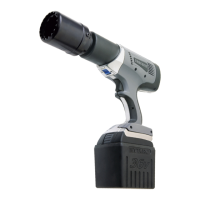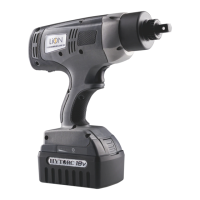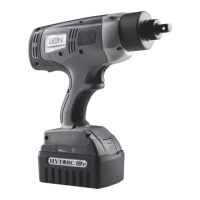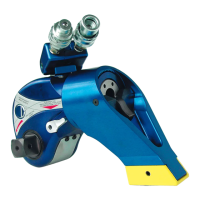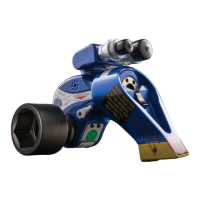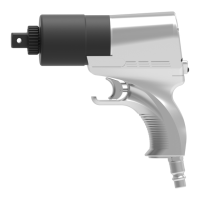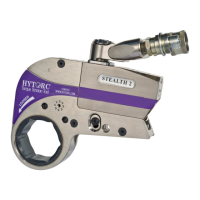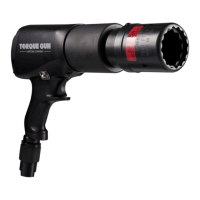1
A. WORK AREA SAFETY
• Keep work area clean and well lit. Cluttered or dark areas invite accidents.
• Do not operate power tools in explosive atmospheres, such as in the presence o lammable liquids, gases or
dust. Power tools create sparks which may ignite the dust or umes.
• Keep children and bystanders away while operating a power tool. Distractions can cause you to lose control.
B. ELECTRICAL SAFETY
• Power tool plugs must match the outlet. Never modiy the plug in any way. Do not use any adapter plugs with
earthed (grounded) power tools. Unmodiied plugs and matching outlets will reduce risk o electric shock.
• Avoid body contact with earthed or grounded suraces, such as pipes, radiators, ranges and rerigerators.
There is an increased risk o electric shock i your body is earthed or grounded.
• Do not expose power tools to rain or wet conditions. Water entering a power tool will increase the risk o electric
shock.
• Do not abuse the cord. Never use the cord or carrying, pulling or unplugging the power tool. Keep cord away
rom heat, oil, sharp edges or moving parts. Damaged or entangled cords increase the risk o electric shock.
• When operating a power tool outdoors, use an extension cord suitable or outdoor use. Use o a cord suitable
or outdoor use reduces the risk o electric shock.
• I operating a power tool in a damp location is unavoidable, use a Ground Fault Circuit Interrupt (GFCI)
protected supply. Use o a GFCI reduces the risk o electric shock.
C. PERSONAL SAFETY
• Stay alert, watch what you are doing and use common sense when operating a power tool. Do not use a
power tool while you are tired or under the inluence o drugs, alcohol or medication. A moment o inattention
while operating power tools may result in serious personal injury.
• Use personal protective equipment. Always wear eye protection. Protective equipment such as a dust mask,
non-skid saety shoes, hard hat or hearing protection used or appropriate conditions will reduce personal injuries.
• Prevent unintentional starting. Ensure the switch is in the ofposition beore connecting to power source
and/or battery pack, picking up or carrying the tool. Carrying power tools with your inger on the switch or
energising power tools that have the switch on invites accidents.
• Remove any adjusting key or wrench beore turning the power tool on. A wrench or a key let attached to a
rotating part o the power tool may result in personal injury.
• Do not overreach. Keep proper ooting and balance at all times. This enables better control o the power tool in
unexpected situations.
• Dress properly. Do not wear loose clothing or jewelry. Keep your hair and clothing away rom moving parts.
Loose clothes, jewelry or long hair can be caught in moving parts.
• I devices are provided or the connection o dust extraction and collection acilities, ensure these are
connected and properly used. Use o dust collection can reduce dust-related hazards.
• Do not let amiliarity gained rom requent use o tools allow you to become complacent and ignore tool
saety principles. A careless action can cause severe injury within a raction o a second.
WARNING! Read all safety warnings designated by the symbol and all instructions.
Save all warnings and instructions for future reference.
The term “power tool” in the warnings reers to your mains-operated (corded) power tool or battery-operated (cordless)
power tool.
1. GEN ERAL SAFE T Y IN FO RMATION

